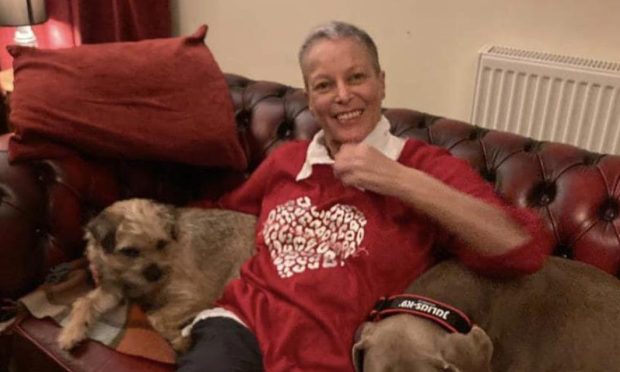The post-mortem examination of a woman who died following an alleged altercation with her sister showed “no evidence of an assault”, a jury has heard.
Susan Hendrickson, from Roybridge, died from a bleed on the brain on January 13 2022 – two days after the alleged assault at the hands of her sister, Jane Forey.
Forey has pleaded not guilty to killing 56-year-old Ms Hendrickson, known as Sue, and is currently on trial for culpable homicide at the High Court in Inverness.
Forey, 61, denies a charge that she assaulted Ms Hendrickson by pushing or striking her, causing her to fall to the ground and strike her head leaving her so severely injured that she died.
The trial had previously heard evidence that Forey had slapped her sister after she found Ms Hendrickson sitting on her partner’s lap at their shared home.
Hendrickson’s ex-husband, with whom she maintained an amicable relationship and regular contact, also told the court that prior to her death she was “concerned about her welfare” after Forey had “come at her with a kitchen knife”
In an email to Ivor Hendrickson after her sister’s death, Forey wrote: “We had had a tiff – she pushed me and when I pushed her back, she fell as unsteady on her feet due to drink.”
Forensic evidence
On the third day of the trial the jury heard from the forensic pathologist who carried out a post-mortem examination on Ms Hendrickson.
Dr Gemma Kemp, from the University of Glasgow’s forensic medicine department, told the court that the 56-year-old had been suffering from the effects of alcoholic liver disease, which had reduced her blood clotting abilities.
She explained that the examination suggested Ms Hendrickson had suffered a blunt force trauma, which led to “unsurvivable” injuries.
The consultant, who has performed around 3,000 post-mortem examinations throughout her career, stated that there was “no evidence of an assault being the cause of this bleed on the brain” but said that third-party involvement could not be excluded either.
Detailing that there were no visible injuries to Hendrickson’s scalp, the expert explained bleeds on the brain could be caused by “relatively trivial trauma – especially in chronic alcoholics”.
This was because changes to the brain caused by alcohol use made blood vessels more vulnerable to tearing, while clotting disorders meant bleeding could last longer.
Forey asked sister if she wanted to go to hospital but she declined
Hendrickson’s death was attributed to a subdural haematoma due to a head injury sustained during a fall. Her alcohol-related liver disease was given as a contributing factor.
The trial also heard from witness Allan McMillan, a friend of Forey, who told the jury that, on the date of the alleged incident, he had visited the Glenspean Park home in Roybridge where she and her sister lived.
He said Ms Hendrickson “didn’t look well” and told the court that he remembered Forey asking her sister if she wanted to go to hospital – an offer he said the now-deceased woman had declined.
Mr McMillan, who travelled to pick Forey up and bring her home following the death of her sister, said she told him when on that occasion that she had “killed her sister”.
He said his first reaction to this had been that “one slap wouldn’t kill your sister” and noted that Forey’s comment came soon after the decision had been taken to turn off Ms Hendrickson’s life support.
“That would have been hard,” Mr McMillan said.
Forey denies the culpable homicide charge and has lodged a special defence of self-defence.
She has also pled not guilty to two further charges of assault.
One alleges she assaulted Hendrickson at their home between November 20 2021 and January 10 2022 by repeatedly acting in an aggressive and intimidating manner towards her, repeatedly striking her on the head and body and brandishing a knife at her.
The other is a charge of assaulting her partner at the same address by repeatedly pushing, punching and kicking him on the head and body to his injury. This charge also has a special defence of self-defence lodged.
The trial, before Judge Pasportnikov, continues.
